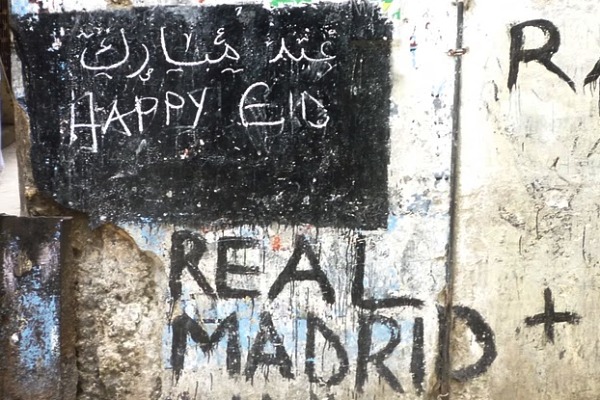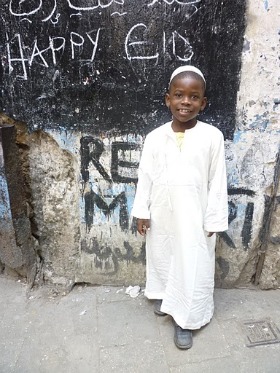
All photos by author.
Gifty! Zawadi! Gifty!
While walking home from the market, I heard the infamous call: “Giiiiiifty!” A young man who I barely know but see often on this particular route took one glance at my overflowing market bag, tilted his head playfully, looked up at me with a smile, and said, “gifty!” He was hoping I would reach into my bag and hand him a clove of garlic, a bag of raisins, something little – a gift.


